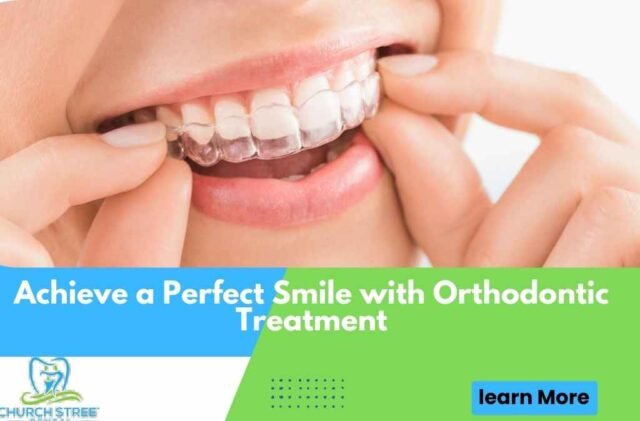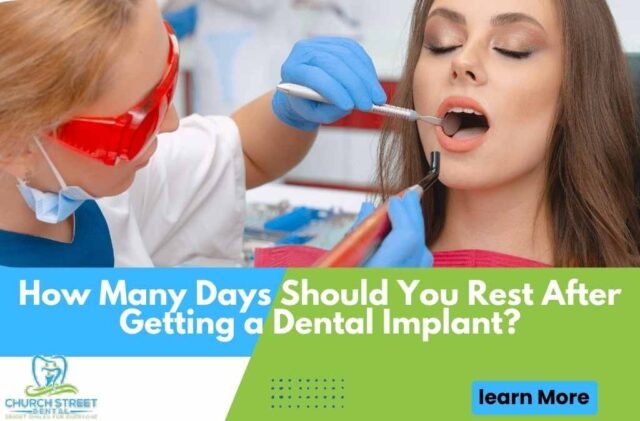Dental crowns are an essential tool in restorative dentistry, offering an effective solution for protecting and strengthening damaged or weakened teeth. They serve to restore both the form and function of a tooth that has been compromised by trauma, decay, or wear. Crowns are not only functional but can also significantly enhance the aesthetic quality of your smile, making them a popular choice for many patients.
What is a Dental Crown?
A dental crown is a cap or covering that is placed over a tooth to restore its shape, size, strength, and appearance. Crowns are custom-made to fit over a tooth and are designed to mimic the appearance of a natural tooth. The procedure for placing a crown typically involves preparing the tooth, taking impressions, and placing a temporary crown until the permanent one is ready. Crowns are often needed when a tooth is too damaged for a filling but not so damaged that it requires extraction.
When Do You Need a Dental Crown?
Crowns are used to address a variety of dental issues. Some common situations where a crown may be recommended include:
- Severe Tooth Decay: When a tooth is decayed beyond the ability to be repaired with a filling, a crown can restore its structure and functionality.
- Cracked or Fractured Teeth: If a tooth is cracked or fractured, a crown helps hold the tooth together and prevent further damage.
- Root Canal Treatment: After a root canal, the tooth becomes brittle and is more likely to break. A crown strengthens and protects the tooth from further damage.
- Large Fillings: If a tooth has a large filling, a crown may be needed to prevent the tooth from cracking or breaking.
- Cosmetic Reasons: Crowns can improve the appearance of discolored, misshapen, or chipped teeth, especially those visible when you smile.
- Dental Implants: Crowns are often placed on top of dental implants to replace missing teeth.
Types of Dental Crowns
Dental crowns come in a variety of materials, each offering different benefits depending on the specific needs of the patient. The choice of material typically depends on the tooth’s location in the mouth, the patient’s budget, and aesthetic preferences.
1. Porcelain Crowns
Porcelain crowns are popular because they offer a natural appearance that closely mimics the look of real teeth. They are especially useful for visible teeth, such as those in the front of the mouth.
- Advantages:
- Aesthetic: Porcelain crowns are highly customizable in terms of color, texture, and translucency, allowing them to blend seamlessly with natural teeth.
- Stain-resistant: Porcelain is resistant to stains, which makes it a great choice for patients who drink coffee, tea, or wine.
- Disadvantages:
- Fragility: While porcelain crowns are strong, they are more likely to chip or break under pressure than metal-based crowns.
- Wear on Opposing Teeth: Porcelain can be abrasive, which may cause wear to opposing teeth over time.
2. Porcelain-Fused-to-Metal (PFM) Crowns
PFM crowns combine the strength of metal with the aesthetic appeal of porcelain. These crowns are popular for restoring back teeth, where the stress from chewing is greater.
- Advantages:
- Durability: The metal base provides strength and durability, making PFM crowns suitable for molars and other teeth that endure heavy pressure.
- Natural Appearance: The porcelain outer layer mimics the color of natural teeth, providing a more aesthetic result than full metal crowns.
- Disadvantages:
- Metal Visibility: While the porcelain covers the metal, some patients may still notice a dark line at the gum line, particularly in areas where the gums recede.
- Potential for Wear: The porcelain can cause wear to the opposing teeth over time.
3. Metal Crowns (Gold or Alloys)
Metal crowns are made from a variety of alloys, including gold, platinum, and base metals such as nickel or chromium. Gold crowns are especially durable and are typically used for teeth in the back of the mouth.
- Advantages:
- Durability: Metal crowns are extremely strong and resistant to wear, making them ideal for molars.
- Minimal Tooth Removal: Metal crowns require less tooth reduction compared to other types of crowns.
- Disadvantages:
- Aesthetic Concerns: Metal crowns are not aesthetically pleasing because they are highly visible. For this reason, they are best suited for back teeth, where they are less noticeable.
- Allergic Reactions: Some people may have allergic reactions to the metals used in these crowns, although this is rare with high-quality alloys.
4. Zirconia Crowns
Zirconia is a highly durable ceramic material that offers both strength and aesthetic appeal. Zirconia crowns are becoming increasingly popular due to their combination of natural appearance and superior durability.
- Advantages:
- Strength: Zirconia is one of the most durable materials available for crowns, making it suitable for both front and back teeth.
- Aesthetic Appeal: Zirconia crowns are naturally translucent, allowing them to closely resemble natural teeth in color and texture.
- Disadvantages:
- Wear on Opposing Teeth: Zirconia crowns can be abrasive, which may cause wear on adjacent teeth if not properly fitted.
- Limited Customization: While zirconia crowns are strong and aesthetic, they are less customizable in terms of color compared to porcelain crowns.
5. Resin Crowns
Resin crowns are typically made from composite resins and are less expensive than other crown materials. While they offer an affordable solution, they are generally used for temporary crowns or less visible teeth.
- Advantages:
- Cost-Effective: Resin crowns are often the least expensive option, making them ideal for patients on a budget.
- Natural Appearance: Resin can be molded to match the color of surrounding teeth, providing a reasonable aesthetic result.
- Disadvantages:
- Durability: Resin crowns are less durable than porcelain or metal crowns and can wear out over time.
- Staining: Resin is more prone to staining compared to porcelain, which may affect the appearance of the crown.
The Process of Getting a Dental Crown
Getting a dental crown typically requires two visits to your dentist. However, with advances in dental technology, some dental offices now offer same-day crowns using CEREC (Chairside Economical Restoration of Esthetic Ceramics), which allows for the creation and placement of a crown in a single appointment.
First Visit: Tooth Preparation and Impression
- Consultation and Examination: During your first visit, your dentist will examine your tooth, take X-rays, and discuss the best treatment options for you. The dentist will also check for any underlying issues, such as gum disease or infection, that may need to be addressed before the crown can be placed.
- Tooth Preparation: To ensure a proper fit, the tooth receiving the crown will need to be reshaped. This may involve filing down the tooth to remove decay or to make room for the crown. If a significant portion of the tooth is missing, the dentist may build it up using filling material.
- Taking Impressions: After preparing the tooth, the dentist will take impressions of the tooth and the surrounding teeth. This is essential for creating a custom crown that fits perfectly. In some cases, digital impressions may be used instead of traditional molds, providing a more comfortable and precise result.
- Temporary Crown: Since your permanent crown will need time to be made, you’ll receive a temporary crown to protect the prepared tooth until your next appointment.
Second Visit: Crown Placement
- Fitting the Permanent Crown: On your second visit, the permanent crown will be ready. The dentist will remove the temporary crown and ensure the permanent crown fits comfortably on your tooth.
- Adjustments: The dentist will check your bite, making sure the crown aligns properly with your natural teeth. If any adjustments are needed, the dentist will make them to ensure the crown is comfortable and functional.
- Cementing the Crown: Once the fit is perfect, the crown is permanently cemented into place. The dentist may use a special adhesive or cement to bond the crown securely to your tooth.
Benefits of Dental Crowns
Dental crowns provide numerous benefits, both functional and aesthetic. Here are the key advantages of choosing a dental crown:
1. Restores Function and Strength
Crowns restore the full functionality of a damaged tooth. They enable you to chew, bite, and speak with ease, helping to prevent further issues that could arise from a compromised tooth.
2. Improves Aesthetics
Crowns improve the appearance of damaged, misshapen, or discolored teeth. Modern materials, such as porcelain and zirconia, allow for highly aesthetic results, especially for teeth visible when you smile.
3. Long-Lasting Solution
Dental crowns are designed to be durable and long-lasting. With proper care, they can last anywhere from 10 to 20 years, providing a reliable solution for many years.
4. Protects Weakened Teeth
Crowns help protect teeth that have been weakened by decay, large fillings, or a root canal. They provide a durable barrier that prevents further damage to the tooth.
5. Prevents Tooth Extraction
By restoring a damaged or decayed tooth with a crown, you can avoid the need for tooth extraction. A crown can preserve the natural tooth, allowing you to maintain your original tooth structure.
Aftercare for Dental Crowns
Proper aftercare is essential for ensuring the longevity of your dental crown. Here are some tips to keep your crown in top condition:
- Good Oral Hygiene: Continue brushing and flossing regularly, focusing on the area around the crown to prevent plaque buildup.
- Avoid Hard or Sticky Foods: While crowns are durable, avoid chewing on hard items like ice or sticky foods that can dislodge the crown.
- Regular Checkups: Visit your dentist regularly to check the condition of your crown and ensure there are no signs of wear or damage.
- Use a Nightguard: If you grind your teeth at night, ask your dentist about getting a custom nightguard to protect your crown and natural teeth from damage.
Your Trusted Dentist for Dental Crowns
Dental crowns are an excellent solution for restoring damaged teeth, improving aesthetics, and enhancing the functionality of your smile. With different materials available, there’s a crown option to meet every need, whether you’re looking for a durable solution for a back molar or a cosmetic upgrade for a front tooth.
If you’re in need of a dental crown or other restorative treatments, visit Church Street Dental, your trusted Dentist in Chicopee, MA. Our team is committed to providing top-quality care and ensuring your comfort and satisfaction throughout the entire process. Schedule an appointment today to discuss how a dental crown can benefit you!





